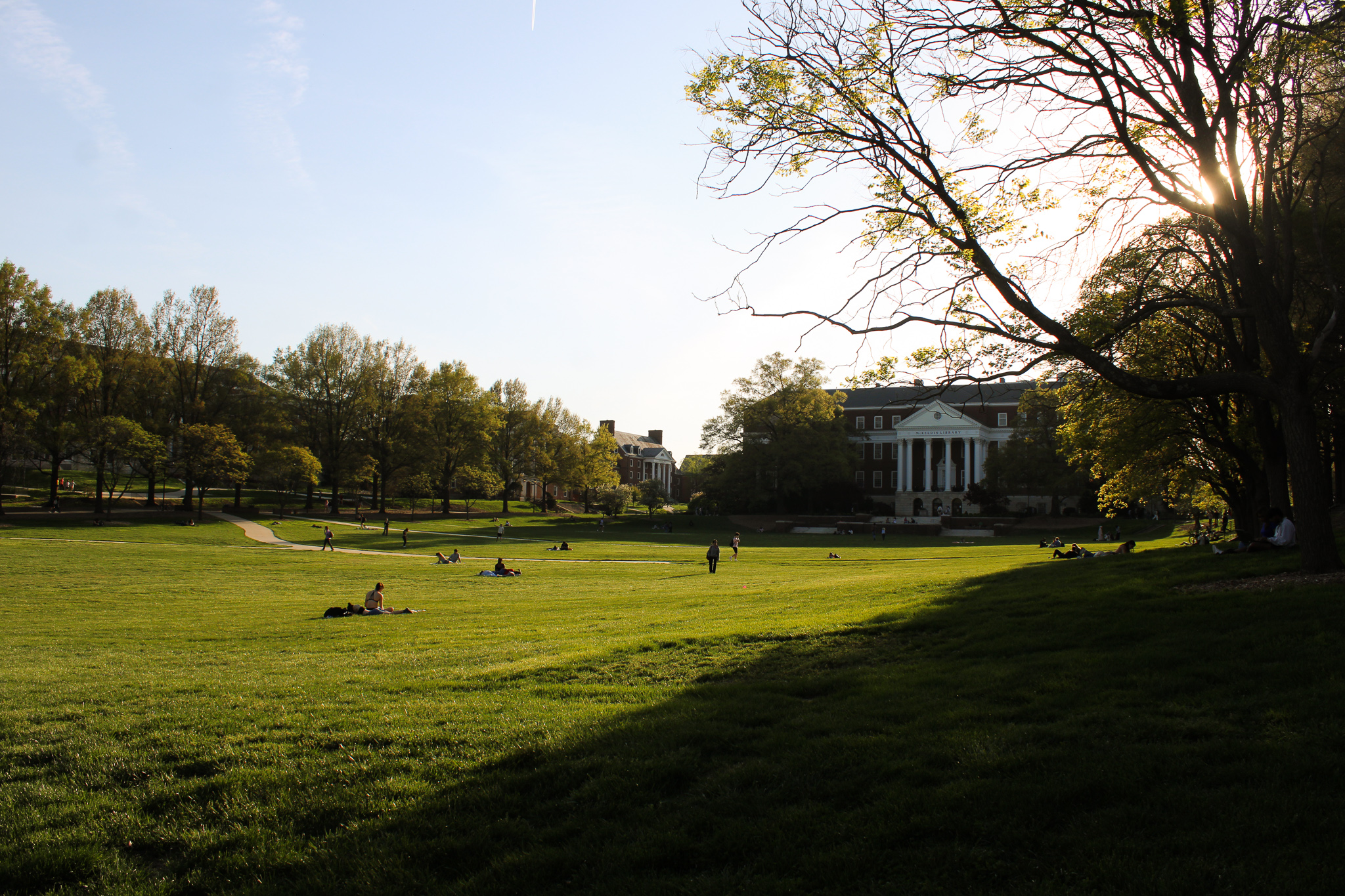The University of Maryland achieved its accelerated goal of carbon neutrality by this Earth Day, according to an announcement from this university’s sustainability department.
Carbon neutrality describes the balance when the amount of greenhouse gas emissions are canceled out by the amount reduced in the atmosphere, which results in zero net carbon emissions, according to this university’s 2009 Climate Action Plan.
The plan listed an initial goal of reaching carbon neutrality by 2050. But in his 2021 inaugural address, university president Darryll Pines announced an expedited goal of April 22, 2025.
“It clearly benefits the environment, number one, by reducing our carbon footprint of the 53,000 people that support this institution,” Pines told The Diamondback in February. “We serve as a leader to the rest of higher education.”
[UMD students celebrate the environment, sustainability at EarthFest]
The university aimed to reduce vehicle reliance on gasoline and diesel and took measures to conserve energy in campus operations were methods used to achieve this goal, according to the announcement.
This university’s carbon offset program website said the university helped neutralize carbon emissions through renewable energy projects and methane capture — a process where landfill gas is extracted before escaping into the atmosphere and converted into renewable energy.
This university’s Climate Action Plan 3.0 was published in 2024 and describes this university’s reduction of greenhouse gas emissions and energy consumption, and this university’s sustainability education program for first-semester students. More than $3.27 million in sustainability fund grants have also been awarded to students and faculty for sustainability research and programs, according to the action plan.
[UMD Campus Farm’s first dairy goats give birth to 2 kids]
The action plan also detailed future sustainability goals and plans, including transitioning to an all-electric vehicle fleet by 2035.
But transportation services director David Allen said at a March Residence Hall Association meeting that recent federal policy hindered the construction of new electric buses for this university, The Diamondback reported.
This university is still on track to achieve its electric bus goal by early 2035, Pines told The Diamondback in February. Pines also said this university hopes to have a fully fossil-fuel free energy system through its NextGen Energy Program, a public-private partnership aiming to sustainably adapt this university’s energy system, by 2035.
News editor Natalie Weger contributed to this report.



